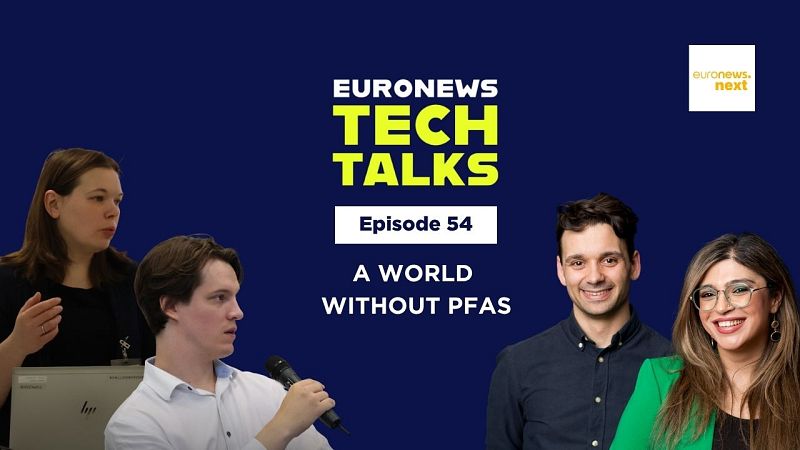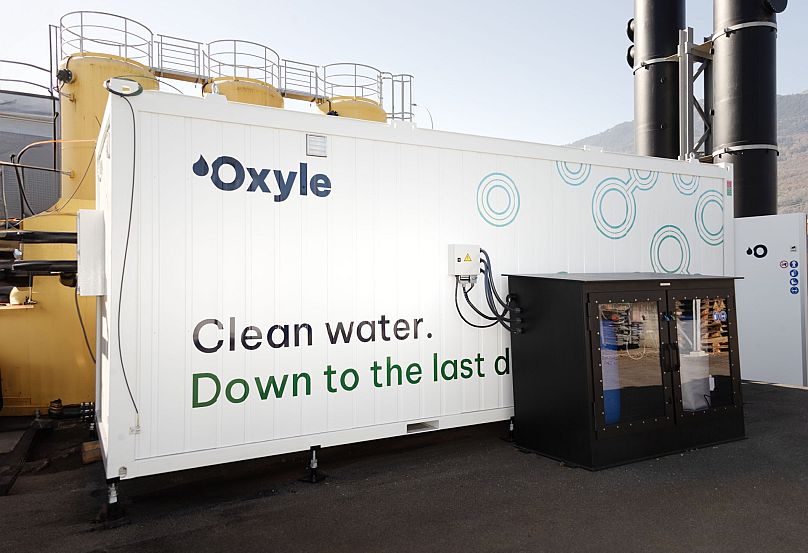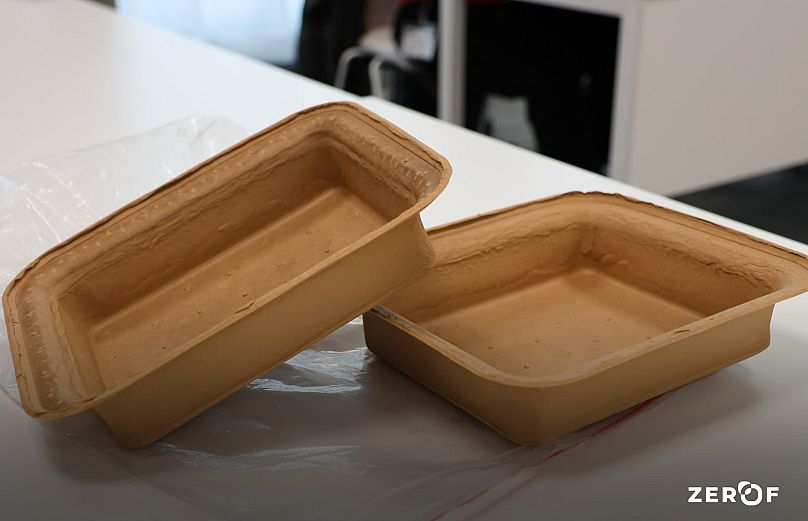A world without PFAS: How to destroy and replace 'forever chemicals' | Euronews Tech Talks

Some stories and dynamics seem to repeat themselves throughout history.
In 2005, the European Union (EU) banned all forms of asbestos in goods, whether produced within its borders or imported.
Asbestos is a group of naturally occurring mineral fibres once widely used in the construction industry for their strength, heat resistance, durability, and relatively low cost.
Despite these advantages, asbestos has been classified as a human carcinogen by the International Agency for Research on Cancer, as exposure can cause cancer of the lungs, larynx, ovaries and mesothelioma.
Following the ban, remediation measures were introduced to reduce the hazards of existing asbestos or dispose of it in appropriate landfill facilities.
New alternatives to the mineral were developed, allowing construction to continue using safer materials.
Synthetic per- and polyfluoroalkyl substances (PFAS), also known as ‘forever chemicals,’ are quite different from asbestos, but their stories share some similarities: both were valued industrial materials, both pose health risks, and both require professional remediation to avoid, or at least reduce, contamination.
It’s still unknown whether PFAS will ultimately follow asbestos in being prohibited in the EU. But one thing is certain: citizens are already working on ways to eliminate PFAS and develop safer alternatives.
In this episode of Euronews Tech Talks, we speak with some of them: Fajer Mushtaq, CEO and co-founder of Oxyle; Miika Nikinmaa, project manager at ZeroF; and Diana Lau, one of ZeroF’s project leaders.
Getting rid of PFAS from wastewater: The experience of Oxyle
Oxyle is a Zurich-based water treatment start-up developing solutions to depollute wastewater contaminated by PFAS.
The company was founded in 2020 by Fajer Mushtaq and Silvan Staufert, and in January of this year, it raised over €15 million to further develop its technology, which captures and destroys PFAS.
Specifically, Oxyle uses a three-step approach. To begin with, a machine called OxFoam uses foam fractionation to separate PFAS from large volumes of water. By injecting air bubbles into contaminated water, PFAS attach to the bubbles, rise to the surface as foam, and can then be easily removed.
Next comes Oxlight, a treatment that breaks the unbreakable carbon-fluorine bonds in PFAS molecules using a chemical reaction driven by light.
And finally, there is OxSignal, which provides continuous monitoring of the PFAS concentration in water.
According to Mushtaq, these technologies are a key reason for Oxyle’s rapid popularity.
“We don't just treat the long and medium chains that many other technologies can treat. We go after specifically for the compounds of PFAS that no one else can treat today,” she told Euronews Next.
PFAS are, in fact, a group of more than 10,000 chemicals. Depending on their characteristics, they can be classified as long, medium, or short-chained, the latter being the most difficult to eliminate.
In addition, Mushtaq believes that her company’s ability to offer client-based solutions, developing personalised approaches to handling contamination, sets Oxyle apart.
Still, she noted that while Oxyle has managed to secure funding to address PFAS, many water-protection start-ups continue to struggle to obtain the financial support needed to tackle the problem at scale.
Beyond PFAS: The ZeroF project
Like asbestos once was, PFAS are widespread in our daily lives, commonly found in products such as food packaging and upholstery textiles.
The project ZeroF aims to change this dynamic by finding safer materials to replace PFAS in these two applications. Co-funded by the EU and the Swiss Secretariat for Education, Research, and Innovation, ZeroF brings together 12 partners from nine different countries to develop technologies that reduce reliance on PFAS.
For food packaging, the project is using cellulose, applying modifications to increase its oil and water resistance. For textiles, researchers are exploring organically modified ceramics (Ormocers), which combine the durability of ceramics with the flexibility of polymers.
“It’s quite a big challenge or a major challenge to develop PFAS-free coatings with really a comparable performance,” Diana Lau, project leader working on the textile branch of ZeroF, told Euronews Next. Lau explained that it’s difficult to replicate the multiple characteristics, such as oil and water repellence, provided by the carbon-fluorine bond in PFAS. “We cannot only change a single atom to achieve comparable performance,” she continued.
The ZeroF project is now in its final stages, and the technologies it proposed remain at a preliminary level, as the project was primarily a research and innovation initiative. Nevertheless, according to its coordinator, Miika Nikinmaa, the results are promising.
He explained that the cost of production for alternatives to PFAS will be very company- and sector-specific.
Alternatives to PFAS could succeed only if they offer additional benefits, he told Euronews Next.
In addition to replacing PFAS, we have to provide other properties. The materials must be recyclable and meet new demands,” he said.
Today






